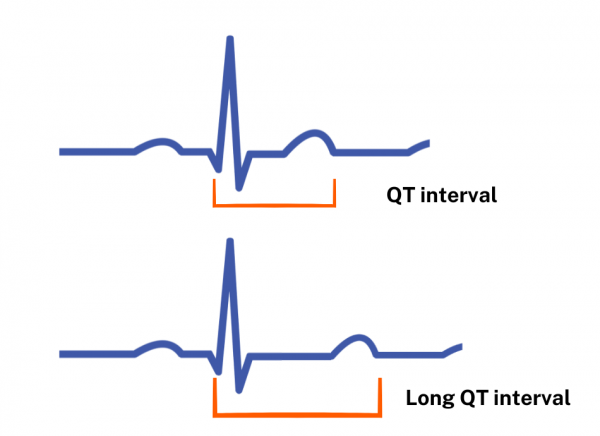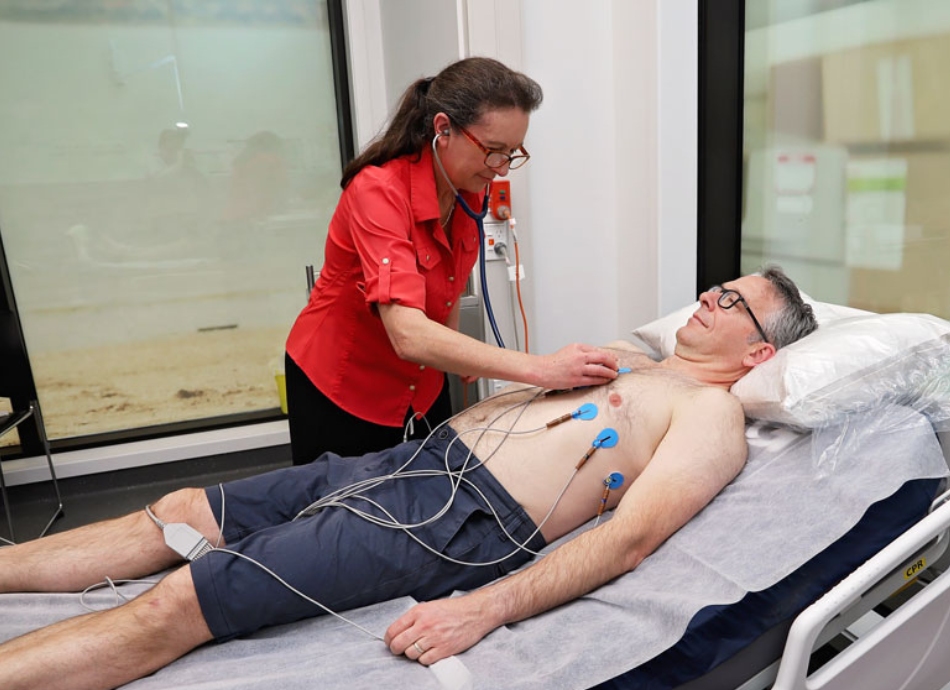You have an increased risk for long QT syndrome if other members of your family have the disorder. It's often inherited from a parent as a faulty gene (also called congenital long QT syndrome).
Medicines
Some medicines can trigger long QT syndrome (called drug-induced long QT syndrome). This usually happens in people with an inherited higher risk of developing it, such as those with slight genetic heart defects. Examples of medicines that may trigger long QT syndrome include:
- antibiotics such as erythromycin, clarithromycin
- antihistamines such as terfenadine (no longer available in Aotearoa New Zealand)
- antidepressants such as citalopram, escitalopram, lithium
- antipsychotics such as aripiprazole, clozapine, olanzapine and quetiapine
- heart medication such as flecainide, amiodarone, sotalol
- domperidone
- methadone.
Natural products, herbal supplements or dietary supplements
An example of a natural product that causes long QT syndrome is Artemisia annua. It's also known as Qing hao, Sweet Annie or Sweet Wormwood. It's used as dried herbs or extracts in several natural health products available in Aotearoa New Zealand. New Zealand doesn't have a register of herbal medicines or an approval system for natural products so a complete list of products containing Artemisia annua dried herb or extract can't be provided here.
If you're at risk of prolonged QT interval, or you're taking QT-prolonging medicines you should avoid products containing Artemisia annua. Carefully check the ingredients of any natural health product or dietary supplement before use. Ask your pharmacist for advice if you are unsure about the product.
See Drugs to avoid(external link) or CredibleMeds(external link) for a list of medicines that should be avoided. Be aware that these websites are not in New Zealand so some of the medicines names may differ.
Be careful
- Always check with your prescriber or pharmacist if you're not sure if the medicines you've been prescribed are safe.
- Be sure to tell them if you or a family member may have long QT syndrome.







